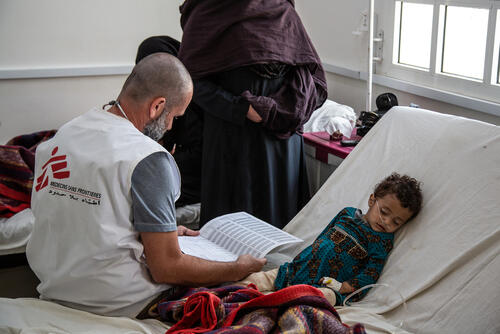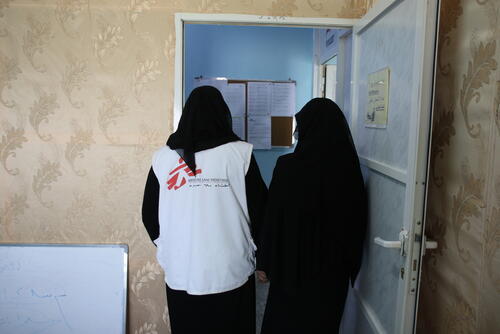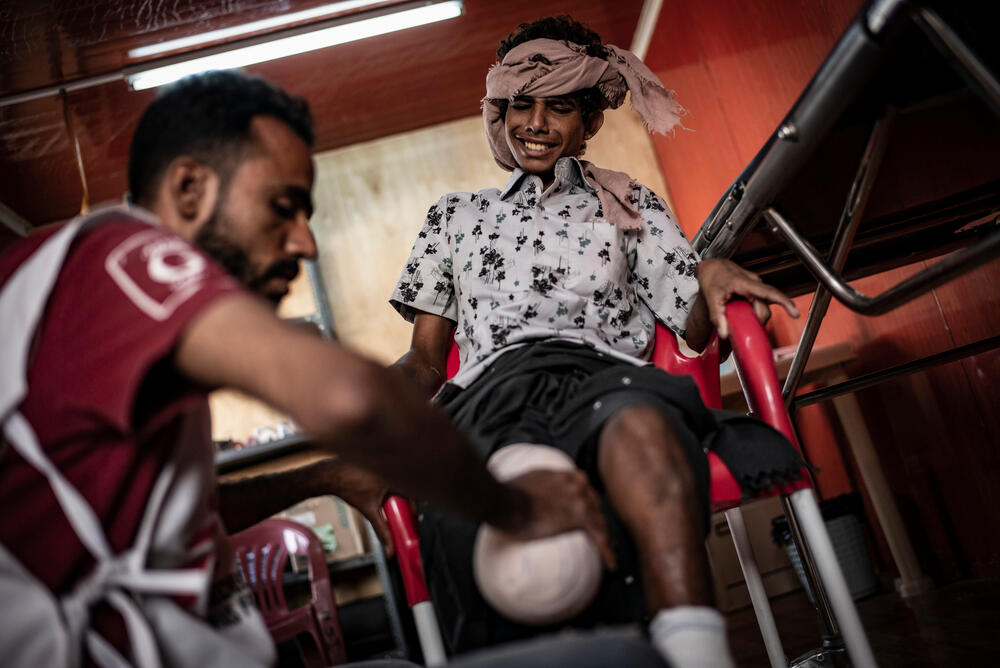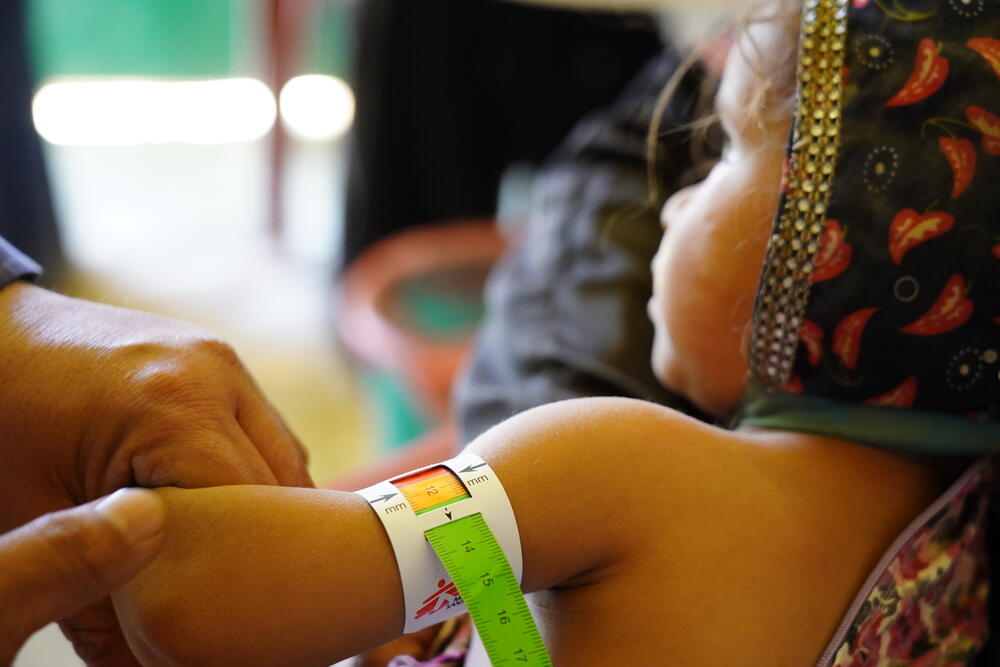Humanitarian crisis in Yemen
Yemen is in the midsts of a civil war.
Indiscriminate bombings and chronic shortages of supplies and staff have led to the closure of many of Yemen's health facilities.
More than three million people have been displaced since the war started in 2015. With an estimated 24 million in need of humanitarian assistance, our activities in Yemen are among our most extensive worldwide.
As well as treating people injured in the violence, MSF teams are also providing care for people affected by the long-term impacts of the war. These impacts include malnutrition, mental health, and lack of access to essential health services, like maternity care.
Help us treat the wounds of war
Our independent funding from private donors like you allows us to work in conflict zones. It means we can provide medical care where the need is greatest, with no strings attached.
Why are we in Yemen?
Warring parties have destroyed much of the country's public infrastructure, including health facilities. Following the imposition of a blockade by the Saudi-led coalition (SLC) in 2015, import restrictions coupled with high inflation have crippled Yemenis’ access to healthcare and other essential services.
Many of the country’s 50,000 health workers stopped recieving salaries and have consequently left the public health system, forced to look for other sources of income.
With fierce fighting due to the conflict, trauma care and surgery is a vital part of our work in Yemen.
Our teams in hospitals closer to the frontlines regularly respond to mass-casualty incidents, and work throughout the year to increase their capacity to deal with frequent influxes of war wounded and other trauma patients.
As a result of the war, it is even harder for people to access clean water, dispose of waste and get medical care. Combined with the lack of access to vaccinations, this has left Yemenis more vulnerable to disease.
The COVID-19 pandemic has had a severe impact. In 2021 Yemen had one of the lowest rates of vaccination against the virus worldwide. MSF opened some of the country's only intensive care units in response to the crisis.
A cholera outbreak in 2017 saw our teams admitting 101,475 patients. The same year we began to see cases of diphtheria, a disease eradicated from most countries thanks to systematic childhood vaccinations.
Even where medical facilities are operational, most people are no longer able to afford the transport costs to go to them.
This means they are unable to seek timely care, and easily curable health conditions are turning deadly when left untreated.
Women often give birth at home and seek care only when complications occur. Malnutrition among children also remains high.
Much of the malnutrition that we see in Yemen is caused by a lack of access to basic health care for
children – if children become ill and cannot get the treatment they need, they are much more likely
to become malnourished.
Inflation is also making it increasingly difficult for Yemenis to feed their children and afford the cost of transporting them to hospital, which contributes both to malnutrition and the late treatment of illnesses.
Featured stories from Yemen

Yemen Providing Care: Amidst Conflict and COVID-19

Mental health in Yemen: The number of severe cases is astonishingly high


